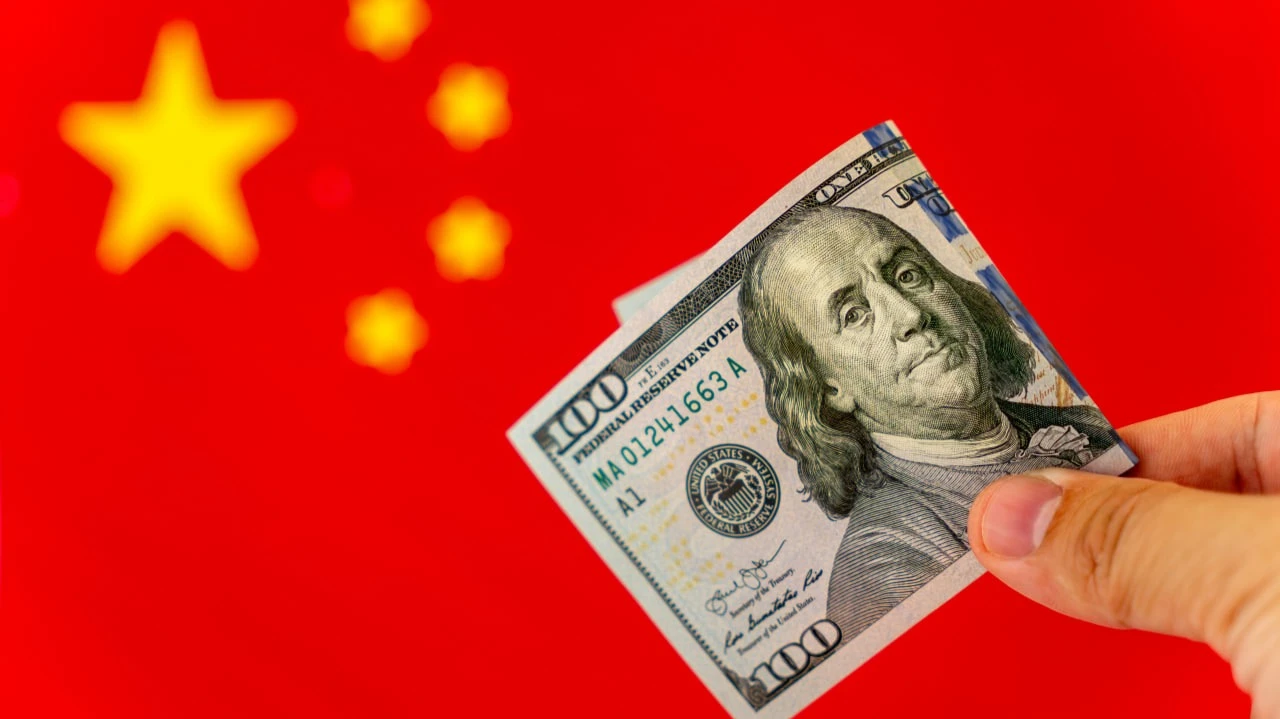China is no longer 'unfit for investment'. Why are investors coming back?
The revaluation of Chinese assets is no longer due to politics but to improving fundamentals, investors say

Foreign investment funds are returning to China after several years of caution about this market. Now interest in it is intensifying amid record growth in quotations and improvement in the situation in the economy, as well as due to the success of the country's companies in the field of artificial intelligence. Investments in stocks, bonds and other assets have grown noticeably. According to the People's Bank of China, net capital inflows by June had already exceeded the annualized 2024 figure by about 60%: such a coordinated rise has been seen only three times in the past ten years.
Details
According to Goldman Sachs, in August global hedge funds were the most active in equity trading in the mainland China market (not in Hong Kong) in recent years, Bloomberg wrote. The situation is very different from 2021, when the bank's clients called China "unfit for investment," the agency noted.
Investors are now more afraid of missing out on profits than worried about possible risks, added investment firm Pacific Investment Management Co.
Official statistics show the growth of foreign investments in different asset classes: in the first half of this year, foreign investors increased their investments in stocks, bonds, loans and deposits in China's domestic market. According to the latest data from the People's Bank of China, net capital inflows by June had already exceeded the full-year 2024 figure by about 60%. Such a coordinated rise has been seen only three times in the past decade, Bloomberg noted.
The CSI 300 index, a key index for stocks in mainland China, rose 17% in the quarter to its highest level in more than three years. The ChiNext Technology Index added 50% over the same period, one of the best performing indices in the world. But despite the gains, both indicators still remain below their 2021 peaks.
What does that mean?
All these factors point to a turning point for the Chinese market. Previously, it lost popularity among global investors due to strict regulation and the real estate crisis, Bloomberg writes. However, the current $2.7 trillion growth of the domestic stock market has made it too attractive to ignore, the agency writes. That said, global funds are still investing less in China than they could. This means that they still have significant potential to increase their investments, the agency notes.
Morgan Stanley said net inflows from foreign funds with long-term strategies reached $1 billion by the end of August, reversing the trend of last year's $17 billion outflow. According to the bank, global funds are still underinvested (underweight) in China by 1.3pc despite the improvement, while managers that focus on Asian markets excluding Japan are already outperforming the market (overweight).
"Global investors are noticeably more interested in Chinese assets. This year the situation is different: the revaluation of Chinese assets is no longer taking place against the backdrop of politics and stimulus, but due to improving fundamentals. Investor confidence is only likely to grow," said Fidelity International portfolio manager Joseph Zhang, who is increasing his investments in this market.
The shift in perception of the Chinese market has a lot to do with the success of the technology sector. Investors like China's advances in artificial intelligence. Large companies, including Alibaba Group, are introducing their own AI models, and chip makers like Cambricon Technologies are achieving new breakthroughs, Bloomberg writes.
Strengthening capital inflows may support the yuan exchange rate and contribute to Chinese President Xi Jinping's plans to strengthen the role of the national currency in the global financial system, the agency said.
The coincidence of external conditions was also a favorable factor. Donald Trump's trade policy, the Federal Reserve's rate cut cycle and the growing U.S. budget deficit are pushing investors to look for alternatives to dollar assets. This is bringing back interest in the Chinese market, notes Bloomberg.
Is it all that optimistic?
For some investors, the consequences of a prolonged downturn in the Chinese market are still serious, and a return there is ruled out, Bloomberg writes. The wave of regulatory crackdowns that began in 2021 and affected sectors from technology to education has crashed stocks and fueled the perception of China as an "uninvestable" market.
Even now Beijing is trying to restrain excessive excitement in the market. This means that too rapid growth of quotations may attract the attention of regulators, the agency notes. Geopolitical tensions are also playing a role - major U.S. public and pension funds continue to bypass China for political reasons. Last year, Florida joined the ranks of U.S. states that have required their pension funds to divest from Chinese assets.
This article was AI-translated and verified by a human editor
